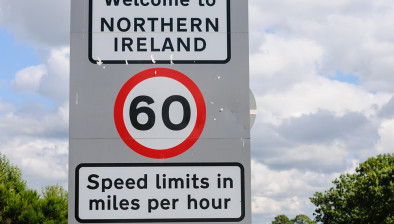NI: Court of Appeal: Man convicted of raping girl in the 1970s has convictions quashed
A man who was convicted of rape and indecent assault of a girl in the 1970s has had his convictions quashed in the Court of Appeal following a referral by the Criminal Cases Review Commission.

About this case:
- Judgment:
The man was convicted of both offences in 2006, and had his appeal dismissed in 2008. Submitting that there was a real possibility that the convictions were unsafe, the CCRC referred the case contending that there were a number of failures on the part of the trial judge.
Finding that the trial judge had not properly directed the jury on the difference between the complainant’s story in 1997 and the allegations made to the police in 2005, Lord Justice Deeny said that there was a “significant sense of unease” about the safety of the jury’s verdict and quashed the convictions.
Background
The complaints of rape and indecent assault against RH were made in 2005 when the complainant went to the police “in very emotional circumstances”. The complainant alleged that the offences occurred when she was a child in the 1970’s.
It was RH’s case that the complainant and her siblings had made up the case in order to exact revenge for RH’s treatment of their mother.
In 2006, RH was convicted of rape and indecent assault. In 2008, his appeal against the convictions was dismissed by the Court of Appeal.
Reference from the Criminal Cases Review Commission
In her direct examination, the complainant confirmed that she had told a relative in February 1997 that RH put his hand up her nightie but was asked not to disclose the detail of what she said.
The CCRC contended that the trial judge failed to properly direct the jury on the approach to be taken on this evidence, that the trial judge failed to adequately direct the jury in relation to RH’s good character, and that these failures gave rise to a real possibility that the court would find the conviction unsafe.
Article 24 of the Criminal Justice (Evidence) (NI) Order 2004 provides for the admission of previous statements made by witnesses as evidence to rebut a suggestion that their oral evidence was fabricated.
Lord Justice Deeny held that the prosecution was perfectly entitled to introduce the complainant’s evidence in order to rebut the suggestion from RH that the case had been made up in order to exact revenge, and that once introduced it was admissible as evidence of the matter stated.
Furthermore, Lord Justice Deeny was satisfied that the trial judge was reasonable in stating that RH’s good character was not an answer to the charges.
Lord Justice Deeny said that the real issue in the case was the trial judge’s direction to the complaint evidence. In this regard, Lord Justice Deeny noted that the first allegation of rape occurred when the complainant went to the police in 2005.; and said the jury needed to consider whether the omission of the rape allegation in the complaint of February 1997 called into question the truth or reliability of that allegation.
Lord Justice Deeny noted that this difference had not been brought to the attention of the jury, that the prosecution relied heavily on the 1997 complaint as being evidence that the complainant had not fabricated her story – but according to Lord Justice Deeny, the 1997 complaint was not inconsistent with the complainant having manufactured a more serious complaint in 2005.
Commenting that the jury had not been directed on whether it was reasonably possible that she enhanced the 1997 complaint in order to fabricate a more serious charge that would have raised concerns about the reliability of the entirety of her evidence; Lord Justice Deeny said that there was an absence of any direction that the complaint evidence was not independent, and that this ought to have been given in light of the prosecution submission that the complaint was evidence of the truth of the charges.
Lord Justice Deeny said that, in applying the test of whether the verdict was unsafe, it should “eschew speculation as to what may have influenced the jury to its verdict”. Stating that the Court had a “significant sense of unease about the safety of the verdicts in this case”, Lord Justice Deeny concluded that the Court should quash both convictions.
Copyright © Irish Legal News Ltd 2018








